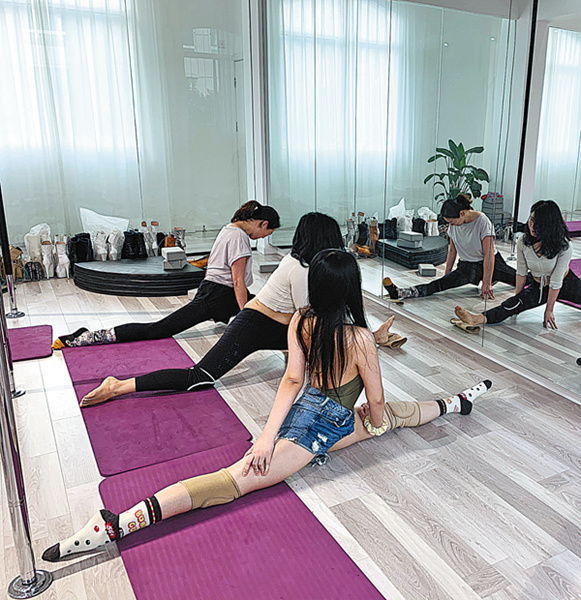In pole position


She adds that both her mental and physical health have been improved since learning pole-dancing.
Song says it has changed the way she looks at the world. "I don't care what other people think. It is like how I started my pole-dancing journey."
Some people may still have a stereotypical view about pole-dancing, but her experience has allowed people around her to understand it and want to even try it out.
Song is one of a growing number of pole-dancing enthusiasts who practice after their working day in Shanghai.
Fitness and professional guidance are the main reasons for the interest.
According to FastData report on China's fitness industry in 2021, the pandemic has increased people's awareness of sports and fitness. In 2020, the number of people who regularly participated in sports reached 435 million, 27 million more than in 2019.
Another report by Qing Cheng Technology suggests the total number of gyms in China reached 98,000 in 2018. In addition to traditional gyms, venues offering CrossFit, bike-training, boxing, archery, pole-dancing and rock-climbing are booming.
"Pole-dancing got a late start in China. In 2008, it was mainly recognized as bar entertainment until some competitions were launched in 2010. After international contacts and exchanges, pole-dancing is becoming more popular," pole-dancer Ke Hong tells news portal Jiemian.
Ke was a winner of a world competition held in Liechtenstein in 2017 by the Pole Sports and Arts World Federation, a nonprofit dedicated to promoting pole-dancing as a sport.




































